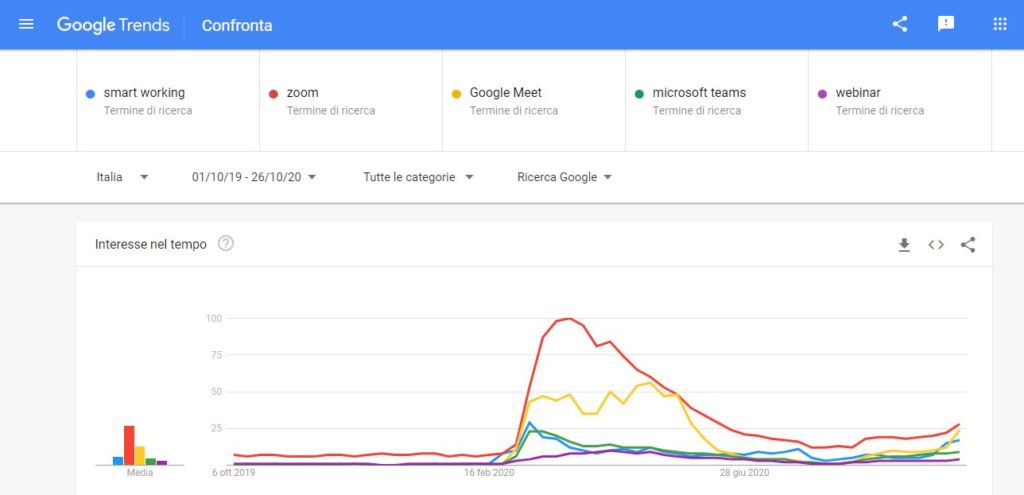
Event industry & Covid-19: what will the changes be?
Covid-19 has overwhelmed the events industry and re-shaped it. Around the world, fast adaptation processes to the new reality are helping to consolidate it. The result? We will hardly go back to life as we knew it. And that’s okay.
The challenge in front of us is technical, creative and financial. The Covid emergency has changed the investment priorities. According to the Italian Observatory of Congresses and Events, the investments that have undergone the greatest share of cancellations are those in human resources, while investments in technologies have been maintained (confirmed entirely or partially by 70.4% of the offices), as well as in infrastructure / services (69.2%).
How can we face the challenge?
First of all, it is necessary to rethink what it means to create and participate in shared experiences and events today. While yesterday the shared space was physical, now it is virtual. The space / time coordinates have become more fluid than ever. An online event can be recorded and reviewed anywhere, at any time. The pandemic pressed the accelerator on the digital future (smart working, meet, webinar, etc.)

What is needed today is the exploration of virtual and hybrid events in multiple forms. Before we can gather again in large numbers, we will have found new solutions that will probably remain with us for the investment and development of expertise that they have involved.
And what about tomorrow?
Quarantines, curfews and social distancing have once again made it clear that the humans are social animals and need real and meaningful connections that no platform can ever provide. So far, the digital counterpart of an event is unable to create the meetings, exchanges of contacts, agreements that seem to flow naturally from a live event. On the other hand, we have learned to appreciate the savings of time, stress and money that business travel and live events entail. Not to mention the fact that, from an organizational point of view, a live event involves significant costs and it is often necessary to sell large numbers of tickets to cover the expenses and, if all goes well, to raise profit margins. For virtual events, the stress of the sale is reduced in proportion to the (much lower) organizational expenses. Another advantage of the online event is the immediate tracking of who participates and how they respond to the event (click on the website, CTA etc.). Last, but not least, the increased sensitivity to environmental issues and the increasing use of sustainable resources and waste containment.
Hopefully, we will return to life as before and today’s changes will follow us. Live events will be organized again and, in all likelihood, will bring hybrid management modes with them.
It is now clear that we need to embrace digital and integrated workflows to survive the market and to implement existing processes. The change is iterative and will have to proceed by trial and error in order to implement an integrated system of interconnected tools to manage live, hybrid and online events. Our work is organized around 3 priorities:
– Platform flexibility
– Constant control of the customer / guest journey
– Health protection of guests and staff
The biggest challenge today, whether we like it or not, is to carefully observe a very unstable present to find solutions tailored to the current needs and have the foresight to invest time and resources where needed. At the same time, it is necessary to look to a very unpredictable tomorrow, try to anticipate new outcomes and always be ready to respond to change.